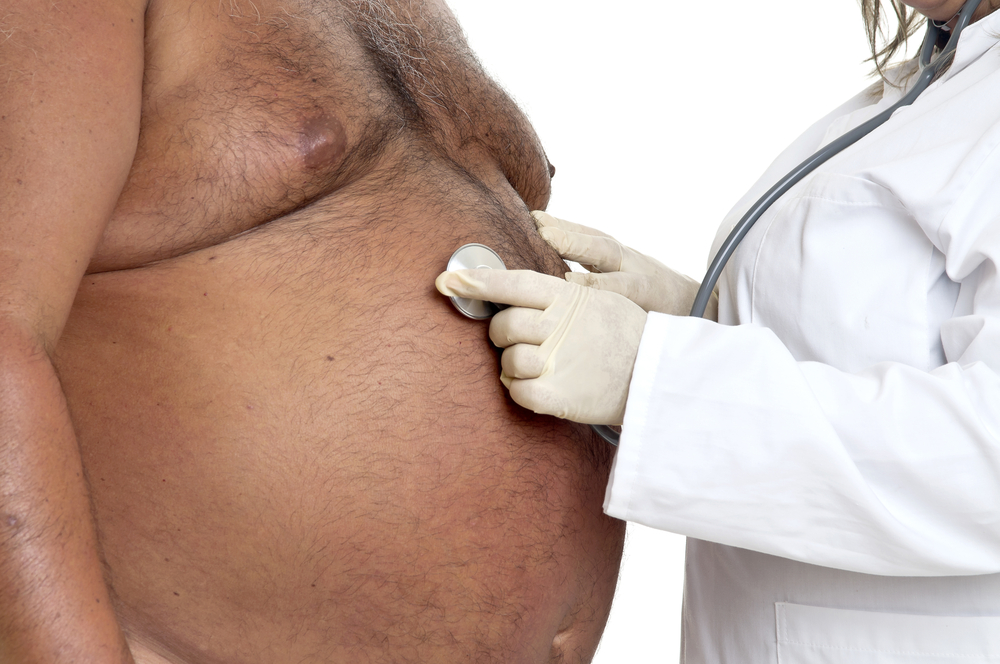Obesity Bias Common Among Medical Students

Overweight and obese people are often the butt of jokes and the victims of bias, yet one would think they could at least find civility in the doctor's office.
Not necessarily so, according to two separate studies. One study revealed that many medical students have an unconscious anti-obesity bias, mirroring medical instructors, and another showed that obese patients are more likely than normal-weight patients to switch doctors because of negative interactions with their physicians.
The study of medical students was conducted by researchers at Wake Forest School of Medicine in Winston-Salem, N.C., and appears in the July issue of the journal Academic Medicine. The researchers found that nearly two out of five medical students at Wake Forest had an unconscious, or implicit, bias against obese people.
Such bias can affect the quality of care, said David Miller, associate professor of internal medicine at Wake Forest and lead author of the study, because "doctors are more likely to assume that obese individuals won't follow treatment plans, and they are less likely to respect obese patients than average-weight patients."
Previous studies have shown that doctors have a strong anti-fat bias, similar to that of the general population, and that this can affect the quality of treatment they give. Medical students have also reported that obese patients are the objects of derogatory humor made by the students' peers and teachers.
Miller said the goal of his study was to determine the extent of such bias among medical students, and whether they are even aware of it. Although the study focused on just one medical school, the students were geographically diverse, representing at least 25 different U.S. states and 12 other countries. The analysis was done with a computer program that measures students' unconscious preferences for "fat" or "thin" individuals.
"The key, take-home point from our study is that close to 40 percent of medical students have a significant anti-obesity bias and don't realize it," Miller told LiveScience. "Therefore, medical schools need to teach their students about anti-obesity bias, how it can affect patient care and what students can do to minimize its impact."
Sign up for the Live Science daily newsletter now
Get the world’s most fascinating discoveries delivered straight to your inbox.
"Ignoring anti-obesity bias will only get in the way of delivering the best care possible for a condition that now affects the majority of Americans," Miller added.
Sending patients packing
Perhaps not totally unrelated, overweight and obese patients are significantly more likely than their normal-weight counterparts to repeatedly switch primary care doctors, according to the other study, which is published in the current issue of the journal Obesity. This switching practice disrupts continuity of care and leads to more emergency room visits, according to the researchers at Johns Hopkins University School of Medicine in Baltimore.
The phenomenon of switching doctors is frequently called "doctor shopping." The researchers found that, compared with normal-weight non-shoppers, overweight and obese doctor-shoppers were 85 percent more likely to visit the emergency room.
This practice of doctor shopping among overweight patients may be a result of negative experiences with the health care system, whether that be off-putting comments made by office staff, unsolicited weight-loss advice from providers or improperly sized medical equipment and office furniture, said the study leader, Kimberly Gudzune, an assistant professor of general internal medicine at Johns Hopkins.
While the exact reasons why overweight and obese patients in the study went doctor shopping remain unclear, Gudzune told LiveScience she suspects that this behavior is in part due to patients' dissatisfaction with their primary care experience, which may stem from perceiving bias on the part of their providers.
Gudzune reported in March in Obesity that primary care providers build less rapport with overweight or obese patients, "which means that they did not make as much of an emotional connection with these patients," she said.
Gudzune added that switching doctors isn't always counter-productive. "If you are dissatisfied with your care or feel judged because of your weight, then you may be better served by finding a provider who can meet your needs," she said.
Taken together, the Wake Forest and Johns Hopkins studies reveal that the potentially poorer health among obese people runs deeper than basic biology, but that implementing improvements in provider service could be straightforward.
Christopher Wanjek is the author of a new novel, "Hey, Einstein!", a comical nature-versus-nurture tale about raising clones of Albert Einstein in less-than-ideal settings. His column, Bad Medicine, appears regularly on LiveScience.

Christopher Wanjek is a Live Science contributor and a health and science writer. He is the author of three science books: Spacefarers (2020), Food at Work (2005) and Bad Medicine (2003). His "Food at Work" book and project, concerning workers' health, safety and productivity, was commissioned by the U.N.'s International Labor Organization. For Live Science, Christopher covers public health, nutrition and biology, and he has written extensively for The Washington Post and Sky & Telescope among others, as well as for the NASA Goddard Space Flight Center, where he was a senior writer. Christopher holds a Master of Health degree from Harvard School of Public Health and a degree in journalism from Temple University.
Crop circles surround Iraq's multicolored 'Sea of Salt' after years of drought — Earth from space
Watch humanlike robot with bionic muscles dangle as it twitches, shrugs and clenches its fists in creepy video
'The parasite was in the driver's seat': The zombie ants that die gruesome deaths fit for a horror movie










